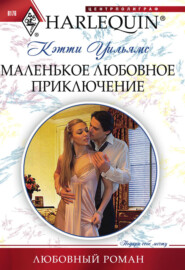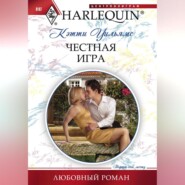По всем вопросам обращайтесь на: info@litportal.ru
(©) 2003-2024.
✖
A Thorn In Paradise
Автор
Год написания книги
2018
Настройки чтения
Размер шрифта
Высота строк
Поля
Whatever had caused the feud between father and son, and in all his rantings Benjamin had never disclosed, it was a bitter one. There were no pictures of his son anywhere that she had ever seen. She had no idea whether he was short, tall, fat, thin, fair-haired or dark-haired. She had built her own mental picture of him, though. A man in his mid-forties, fattish because he was successful and successful men never seemed able to resist the lure of good food and fine wine. Possibly he was arrogant—that at any rate was what she had been told in great detail—but equally possible was that he was now no more than a tired, overworked businessman who had been too proud to revisit the family home. Who knew? He might even be married with twelve children. Benjamin had never volunteered the information and she had not pried. She knew from her own experience how irritating and uncomfortable other people’s curiosity could be. She could remember, from all those years ago, the greedy nosiness of some of her so-called friends as they tried to elicit the details of her private misfortune. They had called it concern, but she had recognised it for what it was, the feeding of vultures on someone else’s grief.
He was still venting his anger when she settled him into bed at nine that night.
He had carried the letter around with him for the entire day, and the last thing he had done before she had left his bedroom was to pull it out and wave it in her face, with a scowl.
‘I shouldn’t be subjected to this at my age!’ he told her. ‘I should be taking things easy, not getting worked up like this. You know that. You nag me often enough about my blood-pressure.’
‘Yes,’ Corinna said, perching on the side of his bed and watching while he took his capsules. He had a mild heart condition and the tablets were necessary for his health. He hated taking them though, and she had got into the habit of waiting till he did just in case he got it into that stubborn head of his to dispose of them after she had left the room.
‘Yes what? Yes what? Don’t just sit there and say yest!’
‘You’re not doing yourself any good with all this ranting and raving,’ she said soothingly, removing the glass from him and handing him a mug of cocoa, which he stared at in loathing.
‘Take that away from me,’ he muttered ferociously. ‘Bring me a proper drink. A gin and tonic! A whisky! Some brandy!’
‘He may not even come,’ she said, ignoring that request. ‘Did he tell you when he’d be arriving?’
‘Not in so many words. Knew I’d make sure the house was locked and bolted, probably.’
‘Then if he hasn’t told you definitely when he’s coming, he probably won’t turn up. Why is he planning on visiting after all this time, anyway?’
The old man shrugged and took the mug from her. ‘Didn’t say. Just said some rubbish about wanting to discuss a few things with me. What’s there to discuss after all this time? Twelve years to be precise? What’s there to discuss?’
Corinna gave that some thought and frowned. ‘Who knows? Anyway, don’t worry so much about it. Even if he does come, I’m sure you’ll find that he’s nothing like you remember. People change, after all. Life mellows them.’
‘Stop philosophising. I hate it when people philosophise.’
She laughed and patted his hand affectionately. ‘Go to sleep and wake up in a better temper.’
‘You’re going red from that sun.’
She laughed again and said drily from the door, ‘Goodnight. Sweet dreams and don’t forget the blood-pressure.’
As soon as she was in the downstairs drawing-room, she closed her eyes and settled comfortably in one of the chairs with her book.
This, like much else, had become a pleasant habit. Her girlfriends, whom she saw regularly at weekends, invariably asked her how she could stifle herself in the Surrey countryside when she had spent years working and living in London. They couldn’t understand how peaceful it was at Deanbridge House, for all Benjamin Silver and his tempers. It suited her. She loved waking up to an absence of traffic, she loved the clean air, and she saw a great deal of London anyway, when she visited her friends. Most of them worked in busy London teaching hospitals and she constantly saw first-hand what she had left behind. True, there wasn’t the constant rush of adrenalin as casualty cases were brought in day and night, needing urgent treatment, and maybe one day she would really miss all that and long to return to it, but right now this was just what she needed.
She had originally decided to do private nursing because she had become over-exhausted in her work, and for emotional reasons she needed to get out of London as well.
She stared down at the pages of her book but she wasn’t seeing the fine black print. She was seeing Michael’s face. Dear, sweet Michael to whom marriage had seemed almost inevitable. They had known each other from children and it had become accepted, over the years, that they were meant for each other. It had been a tacit understanding and it was only last year, at the age of twenty-two, when she had looked at him, with his good-natured smile, his undemanding amiability that she’d realised, quite suddenly, that she couldn’t possibly marry him, however much a part of her craved that placid, undemanding security that he could offer.
She tried not to remember how upset he had been. It had not been an easy time. Her mother had been aggrieved. ‘Darling,’ she had said in that vaguely theatrical voice of hers, ‘but you’re so well suited.’ Both so dull, Corinna had read behind the words. Her mother had a knack of insinuating an insult. Corinna had become accustomed to that, but at the time it had still hurt. She had grown up in the shadow of her mother’s tempestuous, flamboyant personality. It had had the effect of making her overly cautious, mature beyond her years, practical, down-to-earth, and a part of her knew that that was just how her mother liked it. That way, her daughter could never be a threat to her.
Beyond coping with her mother’s disappointment, though, she had had to cope with herself, with her own gut-wrenching suspicions that she was not built for love if she could not bring herself to love a man who was as kind and caring as Michael had been. Was something wrong with her? she had wondered.
She snapped shut the book and began prowling round the room, her eyes skimming over the tasteful drawing-room with its eighteenth-century wood panelling, its ivory, floor-length silk curtains, its marble mantelpiece. Very soothing colours. The furniture was fairly worn, but the warm, mellowed upholstery gave the room a pleasant glow, as did the small tables, dotted around the room, which were sprinkled with books of all kinds. It was one of Edna’s bugbears that she liked neatness while Benjamin insisted on leaving a trail of books behind him wherever he went.
‘My eyes,’ he was fond of telling her, ‘are about the only useful things I have left. I might as well use them.’
In fact, her own position in the household, which was technically that of private nurse, was really more of a secretary-companion. Benjamin’s health was poor, but not so poor that he really required any real nursing treatment, apart from ensuring that he took his tablets as prescribed and his blood-pressure was kept down. What he really wanted was someone who would take him for walks, talk to him, and help him with a historical piece of writing which he was doing on the house. With anyone else, Corinna acknowledged, it might have become boring, but Benjamin was too demanding and too intelligent for that ever to have been a problem.
Her thoughts turned to his son. Antonio Silver was the invisible presence that still filled Deanbridge House after all these years, although Benjamin would have been outraged if she had ever suggested as much. He liked to think that his son was little more than an aggravating memory, but it had been clear to Corinna from the very start that the old man ranted with the rage of a wounded bear.
Sometimes she thought that Antonio Silver couldn’t possibly be as black as Benjamin portrayed him, but other times she felt an odd, protective anger against this unknown man who still had the power to hurt his own father. What kind of son was it who could cut the strings and leave without a backward glance?
In a strange way she could empathise with Benjamin. She, too, had been the victim of desertion. She only had dim memories of her father. He had left, after all, when she was still a child, left without a backward glance. For years she had wondered whether it was something she had said, something she had done. Maybe she had disappointed him. He had been so dramatic, so much larger than life, just like her mother, two people born to thrust daggers into each other until the effort of removing them had become too great—she had never been like that, passionate and extrovert. Had her own timid nature driven him away? Later, she knew that she had been a fool to have imagined any such thing, but a child’s dark worries lingered far beyond the limits of sensible reason. She couldn’t comprehend anyone who could relinquish their family ties the way Benjamin Silver’s son had done. She knew from the occasional remark tossed in by Benjamin that he had divorced his wife somewhere along the way, and Antonio had left England to live with his mother in her native Italy, but would that have caused such a deep rift?
For the first time, she felt a deep, burning curiosity about this mysterious son. Previously, she had listened to Benjamin when he got on his soap box with her mind somewhere else, but now she wondered what his son really was like.
She was startled to discover when she next glanced at her watch that it had gone eleven, and she got up hurriedly, snapping shut her book and wondering whether she would ever finish it.
Early evenings were a luxury which she thoroughly enjoyed, after having spent years working crazy shifts at the hospital. Towards the end, she could remember being half dead on her feet, battling on in the wards despite an attack of flu which had kept her bed-ridden for a week and then tenaciously clung on, preying on her exhaustion. When, one morning, she had found herself physically incapable of getting out of bed, and no longer really caring whether she did or not, she realised that it was time for a much-needed break.
At this hour the house was totally silent. Edna and her husband, who was responsible for the gardens, were the only two people who lived in. The remainder of the staff were employed locally and they were invariably gone by eight-thirty, some much earlier.
She was walking past the front door when there was an almighty bang on it, followed by another.
Corinna wasn’t a coward but she remained where she was, uncertainly wondering whether she should fetch Edna’s husband Tom or else open the door herself. It was damned late for callers, or at least for those interested in socialising with Benjamin, but then burglars would hardly bang on the front door and expect entry. Or would they? She stood there, biting her lips in frustrated indecision, and only walked across to the door when the third heavy bang threatened to raise the household.
She carefully pulled open the door and then tried to shut it as her eyes took in the man standing outside, tall, powerful and with an aura of menace surrounding him.
It was a useless attempt, though. He pushed against it and her strength was no match for his. She fell back, and it was only when he was inside the hall that she realised that she had been holding her breath with fear.
Seeing him at close quarters and in the full glare of the overhead light did nothing to dispel the sensation of threat. She was a tall girl but he towered over her and the lean, hard build of his body spoke of a latent power. Her immediate impression was that this was not a man who took kindly to being crossed, which brought her back to the disturbing question: what if he was a burglar?
She folded her arms to stop herself from shivering and looked at him, her pupils dilated with fear.
‘If you’ve come here to steal, then I’m afraid you’ve chosen the wrong house,’ she said with as much authority as she could muster. ‘There are two fierce dogs. I only have to whistle.’
She found that she couldn’t take her eyes away from his face. It was such a striking face. A strong, sharp nose, above which black brows met in a fierce frown. Angular features which held the potential for cruelty, but a mouth that was strangely sensual and grey eyes which were now fixed on her with a tight, hostile expression.
He was dressed in black. Black trousers and a black jumper. Maybe, she thought, he might be less intimidating in a pair of shorts and a Hawaiian shirt.
‘Really?’ he said in a deep, ironic voice and with the very slightest trace of an accent. ‘I’ve already had the pleasure of meeting your two fierce dogs. They escorted me to the front door.’
‘Who are you?’ She already knew, of course. Initially his sheer physical impact had done something to her brain, made it shut down, but the minute he spoke, she realised that he was Antonio Silver.
‘I’m Benjamin Silver’s son,’ he said coolly, his hands thrust into his pockets, his eyes raking over her and then moving away to glance around him at his surroundings. He looked at her again and she had that same rattled, agitated feeling. ‘But you know that, don’t you? I can see it from the expression on your face. I take it my father received my letter.’
‘You’re not wanted here,’ Corinna burst out and then was immediately horrified by what she had said.
His eyes narrowed on her and she felt herself go scarlet at the scrutiny.
‘You must be Corinna Steadman,’ he said with no attempt at politeness, ‘my father’s keeper.’
Something about his voice made her look at him warily. She felt like someone who was treading very carefully on a minefield and it wasn’t a very pleasant sensation.
‘I work for him, yes,’ she said in a thin voice, ‘I’m his private nurse.’

















